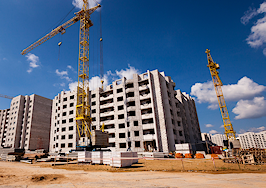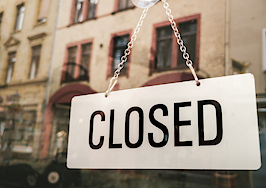No one can predict the future of real estate, but you can prepare. Find out what to prepare for and pick up the tools you’ll need at Virtual Inman Connect online Nov. 1-2, 2023. And don’t miss Inman Connect New York on Jan. 23-25, 2024, where AI, capital and more will be center stage. Bet big on the future and join us at Connect.
Nearly six months after the Arlington County Council ditched single-family-only zoning, Alexandria city lawmakers are poised to do the same as limited inventory and worsening affordability push Virginians to the brink.

Karl Moritz | Credit: Alexandria City Council
The Alexandria City Council is reviewing nine proposals for its Zoning for Housing program, which include plans to expand transit access, redevelop old office buildings into residential housing, and a reanalysis of industrial and townhome zoning among other measures.
However, the plan to ditch single-family-only zoning — also known as upzoning — has garnered the most attention.
Alexandria’s plan would allow townhomes and other multifamily buildings comprised of between three to six units to be built on lots previously reserved for single-family detached homes. An analysis of the plan estimates upzoning could add 66 new residential buildings and an additional 150 to 178 new dwelling units by 2033.
The proposal also includes a revision to parking requirements, which currently provide two parking spaces per unit for single-family detached homes, duplexes and townhouses. Lawmakers want no minimum parking requirements for residential buildings with up to four units within the city’s enhanced transit area. The minimum would rise to 0.5 parking spaces per unit for buildings outside of the enhanced transit area.
“… Providing parking as part of new housing construction has a major impact on the cost of a project, environmental sustainability, and neighborhood quality of life,” the proposal read. “The cost increase is passed onto the resident, resulting in more expensive housing. A residential parking requirement can make construction impractical on certain lot sizes, dominating the aesthetics of a neighborhood, occupying more open space, and increasing traffic.”
The proposal also promises to safeguard “neighborhood compatibility” by maintaining existing requirements for minimum lot size, setbacks, open space, floor area ratio and tree canopy coverage.
“We are experiencing a housing crisis, and the purpose of this work is to strengthen our toolbox,” Alexandria City Planning Director Karl Moritz told The Washington Post of the city’s openness to upzoning. “That’s why there’s a variety of things being looked at. The idea is to better position Alexandria to address our housing challenges.”
Upzoning proponents in the city told WaPo the plan doesn’t go far enough, as Alexandria plunges deeper into a housing crisis.
YIMBYs (Yes, in my backyard) of Northern Virginia Events Director Peter Sutherland told WaPo he’s glad the Alexandria City Council is taking a “more holistic approach about zoning that applies across the board and is really cutting to the heart of the issue.” However, he said, “having a small drop of one or two tweaks to the zoning code doesn’t cut it anymore.”
Another upzoning proponent, Roy Byrd, said he feels the current plan is too simplistic in thinking more housing automatically results in better affordability. “They say that if you create more density to create more housing, that will trickle down to more affordability. Where has that worked?” he said.
An Inman feature published this summer examined Virginia’s housing market, with several agents saying limited new construction opportunities, the return to in-office work, and several other macroeconomic factors have forced buyers into bidding wars over scant inventory.
‘We’re still fighting over the same potato in a famine,” Alexandria-based Keller Williams team leader Kristin Francis told Inman in July. “When you are looking at the list price to close price, we’re over 100 percent, which tracks that we are still in short supply.”
Upzoning gained popularity in 2019, as Oregon and Minneapolis successfully passed laws banning single-family-only zoning. The pandemic temporarily slowed efforts in California, Nebraska, Michigan and Virginia, with Virginia state delegate Ibraheem Samirah pushing for statewide upzoning in late 2020.
“Single-family zoning is also the least efficient way to organize communities, leading to a much larger carbon footprint,” he said during his 2020 campaign to get the law passed. “Upzoning would make it easier to cluster around environmentally-friendly transit options and reduce commutes by allowing you to find housing closer to a job.”
However, Samirah failed to garner support as the Virginia House of Delegates unanimously voted against the plan.













